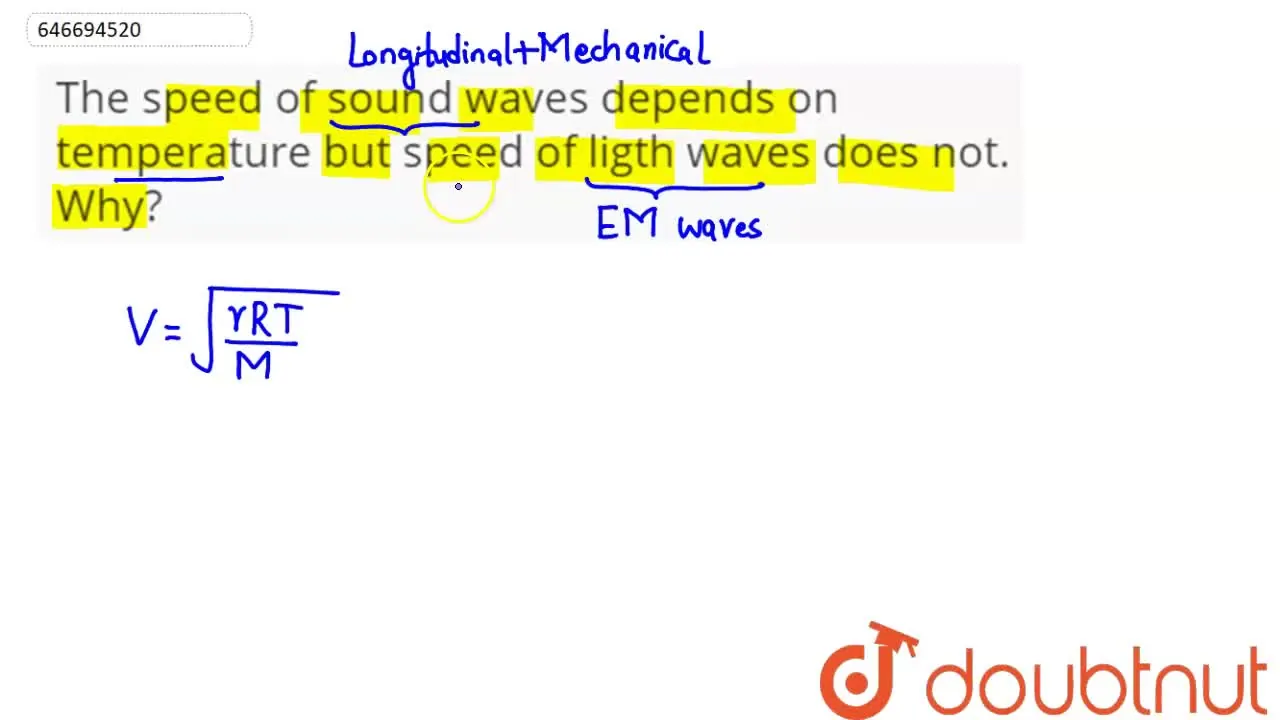The speed of sound waves depends on temperature but speed of ligth waves does not. Why?
Sound is a mechanical wave and for which while light is a nonmechanical wave for which it
Similar Questions
Speed of sound waves in air
View SolutionThe speed of sound in a medium depends on
View SolutionSpeed of sound waves in a fluid depends
View SolutionSpeed of sound waves in a fluid depends
View SolutionThe speed of electromagnetic waves depends upon
View Solutiona=1,052+1.08t
The speed of a sound wave in air depends on the air temperature. The formula above shows the relationship between a, the speed of a sound wave, in feet per second, and t, the air temperature, in degrees Fahrenheit (.∘F).
Which of the following expresses the air temperature in terms of the speed of a sound wave?View Solutiona=1,052+1.08t
The speed of a sound wave in air depends on the air temperature. The formula above shows the relationship between a, the speed of a sound wave, in feet per second, and t, the air temperature, in degrees Fahrenheit (.∘F).
At which of the following air temperatures will the speed of a sound wave be closest to 1,000 feet per second?View SolutionSpeed of sound in a gas at constant temperature depends on
View SolutionSpeed of sound waves in air a) is independent of temperature b) increases with pressure c) increases with increase in humidity d) decreases with increase in humidity.
View SolutionLet speed of sound waves in hydrogen gas at room temperature is v0. What will be the speed of sound waves in a room which contains an equimolar mixture of hydrogen and 'He' at same temperature :-
View Solution


